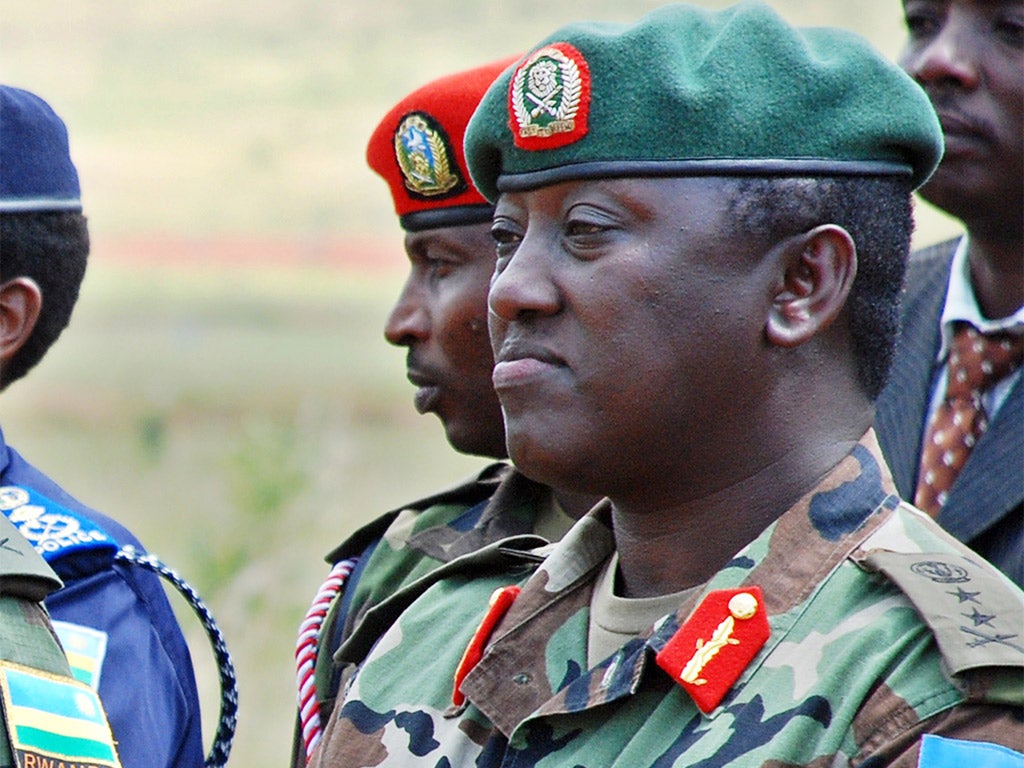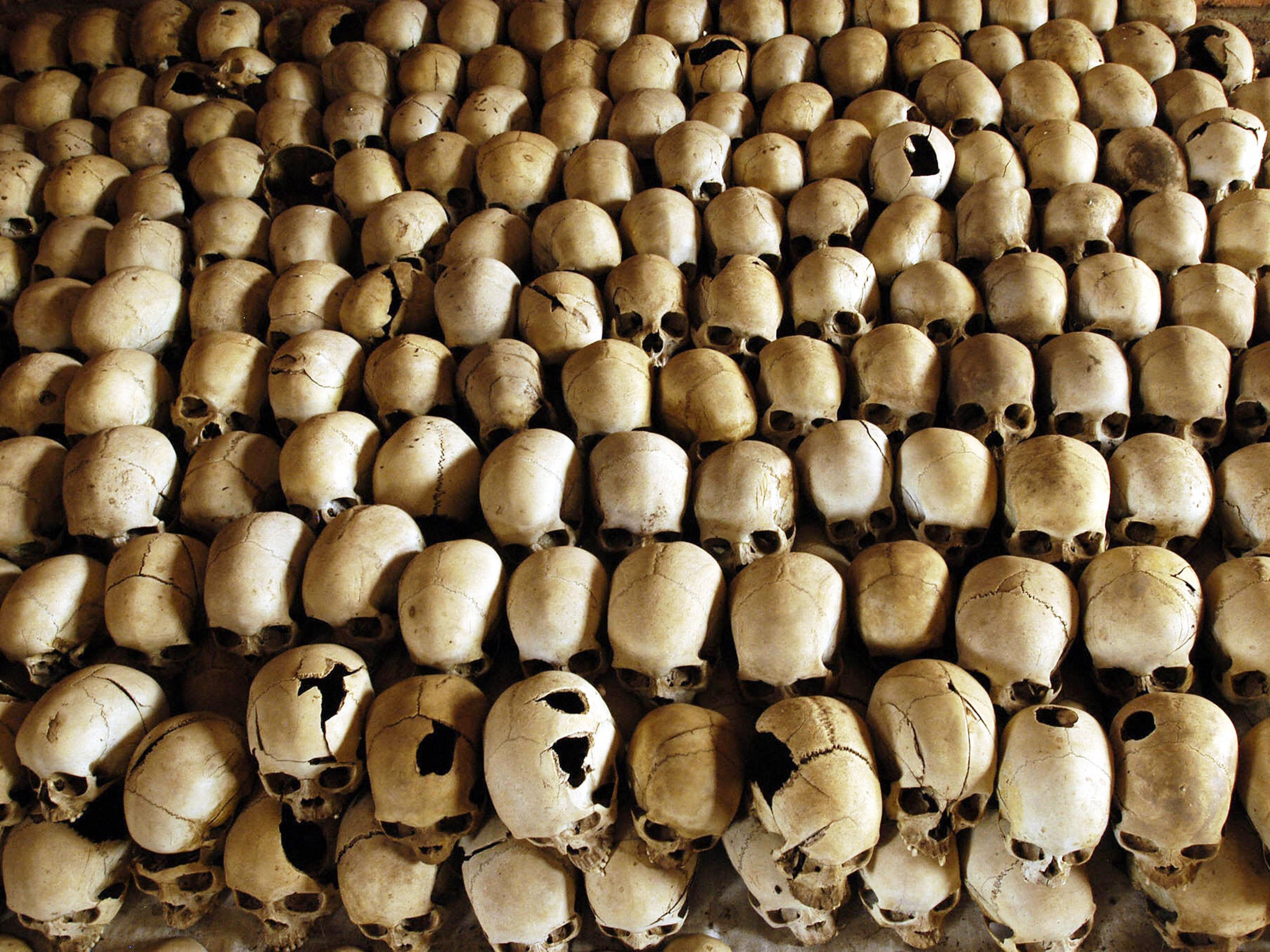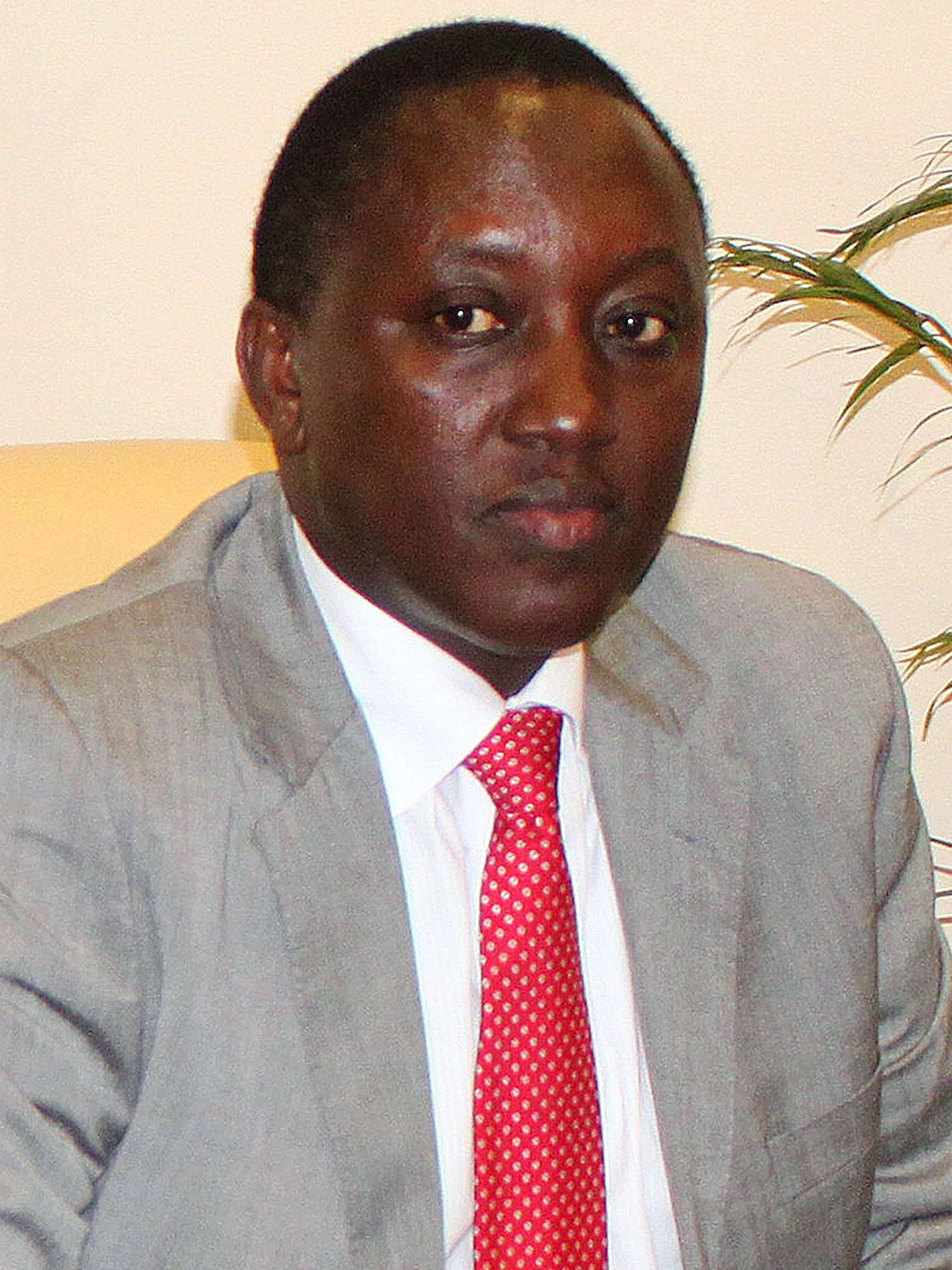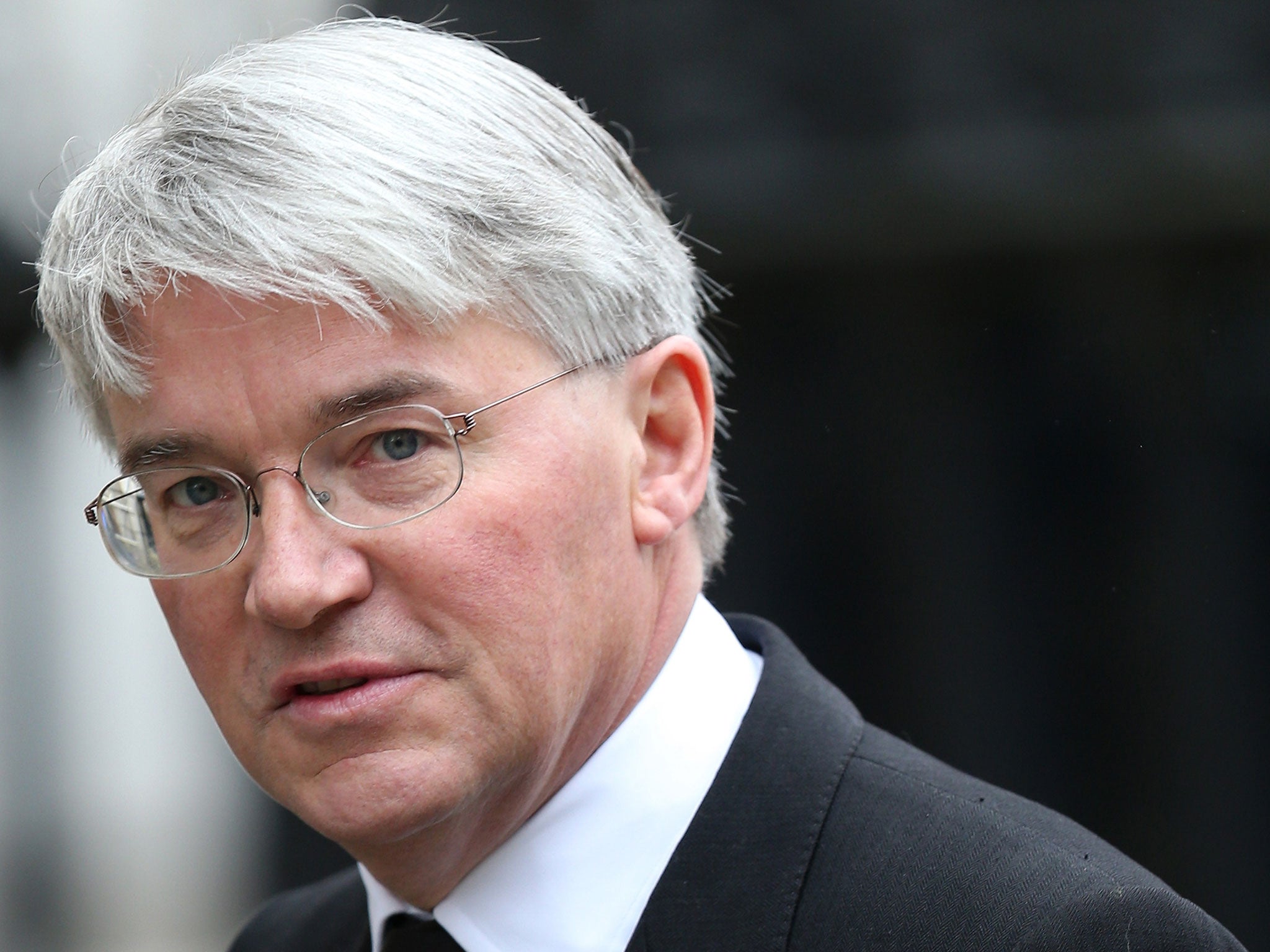Karenzi Karake: Rwandan spy chief arrested in London is implicated in killings of two Britons
Exclusive: General is accused of orchestrating revenge massacres in Rwanda

The Rwandan spy chief arrested in London on suspicion of orchestrating revenge massacres in the wake of his country’s genocide is also implicated in the killings of two Britons, The Independent can reveal.
General Karenzi Karake, who is the head of Rwanda’s intelligence service, was detained on a European Arrest Warrant (EAW) at Heathrow Airport on Saturday by Scotland Yard officers acting on a Spanish indictment accusing him of organising attacks that led to thousands of deaths following his comrades’ intervention to halt the 1994 genocide of 800,000 people.
The Rwandan authorities - and former International Development Secretary Andrew Mitchell - condemned Gen Karake’s detention. Louise Mushikiwabo, Rwanda’s foreign minister described the arrest of the general, who it is understood has been a regular visitor to London despite being the subject of an EAW since 2008, as an “outrage”.
But the lawyer acting for relatives of three Spanish aid workers killed in the massacres told The Independent investigators had built a comprehensive case against the general and 38 other Rwandan officials for crimes including the alleged murders of two British nationals in the aftermath of the genocide.

The Spanish indictment names Chris Mannion, a British Catholic missionary shot dead in 1994, and Graham Turnbull, an aid worker and observer with the UN High Commission for Refugees killed in 1997, among foreign nationals who were targeted alongside thousands of Rwandan Hutus in the aftermath of the genocide, during which ethnic Tutsis and moderate Hutus were massacred wholesale by Hutu extremists.
Gen Karake, 54, who has been remanded in custody pending extradition to Spain, was head of the Directorate of Military Intelligence (DMI) of the Tutsi-led Rwandan Patriotic Front (RPF) which invaded to bring a halt to the mass murder in 1994. But he is accused by a Spanish judge of then playing a key role in a subsequent campaign to tighten the RPF’s grip on power by attacking fleeing Hutus and aid workers.
Jordi Palou-Loverdos, who is representing the Spanish victims, said: “The evidence is that General Karake was himself involved in the organisation of these killings - of Rwandans, Congolese, Spanish, Britons and others - as the head of the DMI between 1994 and 1997.
“There was a targeting of missionaries and in 1997 of foreign aid organisations, including UN agencies, to force them to leave western Rwanda, where most of the killings were happening. We have many protected witnesses who have said very, very clearly that the instructions for this came from the top [of the DMI].”
Scotland Yard declined to say whether it had investigated Gen Karake in connection with the deaths of Mr Mannion or Mr Turnbull, which at the time were blamed on Hutu militias trying to destabilise the RPF government led by President Paul Kagame, who was previously feted by the West but is now widely criticised as autocratic. Mr Kagame counts former Prime Minister Tony Blair among his supporters.

Senior figures in the Rwandan government reacted with barely-concealed fury to the arrest of Gen Karake, who is currently director general of Rwanda’s National Intelligence and Security Services (NISS), equivalent to the combined head of Britain’s MI5 and MI6.
Williams Nkurunziza, the Rwandan high commissioner to the UK, told the BBC: “We take strong exception to the suggestion that he’s being arrested on war crimes. Any suggestion that any of our 40 leaders are guilty of crimes against humanity is an insult to our collective conscience.”
Mr Mitchell, who worked closely with Mr Kagame and his government while in office, cast doubt on the accuracy of the Spanish indictment, which was criticised in leaked American diplomatic cables, and said the allegations had arisen from supporters of Rwanda’s previous genocidal regime.
He said: “These are politically motivated. They are not about justice, they are about politics. Let’s be very clear, they are being pursued by supporters of the genocidal regime which murdered up to one million people in Rwanda.”

The detention of Gen Karake, known by the nickname of KK, is politically difficult for Britain, which has been a close ally of Rwanda and is its single largest donor of international aid. A spokesman for Prime Minister David Cameron said that the arrest was arrest was an “operational matter” for police.
While many suspected genocide suspects have been arrested abroad, including four men in Britain currently awaiting extradition, it is thought that the general is the first RPF figure to be detained on charges relating to the genocide.
Relations between London and Kigali have deteriorated in recent months following the broadcast of a BBC documentary which examined claims that the 1994 genocide was provoked by Mr Kagame and the Tutsi death toll exaggerated. The Rwandans accused the BBC of genocide denial and subsequently banned its broadcasts in Rwanda.
Both supporters and pursuers of the general expressed surprised at the timing of the arrest of the spy chief, who is understood to have been in Britain at least half a dozen times since the issuing of the EAW on behalf of a Spanish judge in 2008.
The Independent understands that the Metropolitan Police may have acted to arrest Gen Karake, who had been in London for a week, following an approach from a campaign group, the Global Campaign for Rwandan Human Rights. Rene Mugenzi, the head of the group who was previously formally warned by the Yard that he was the target of a potential assassination by Rwandan agents, said: “It is a huge relief that Karake has been detained. It is hopefully the beginning of a process that will lead to justice for thousands of Rwandans.”
The Spanish authorities said they were in the process of forwarding the necessary documentation concerning Gen Karake’s alleged crimes to London ahead of a full extradition hearing at a future date.
Mr Palou-Loverdos said he did not know what had persuaded the British authorities to act last week on the EAW. He said: “I think I would say it is better late than never. We do not know what happens behind the scenes.”
The British victims
Chris Mannion, 43, missionary
When a request came from the Rome headquarters of Mr Mannion's missionary order - the Marist Religious Institution - to travel to Rwanda to come to aid of his confreres caught in the tumult of the 1994 genocide, he did not hesitate. The British-born missionary was heading for the small Catholic mission of Save in southern Rwanda under escort from a detachment of French peacekeepers on 1 July 1994. But when the vehicle carrying the French soldiers got stuck in mud, Mr Mannion and colleague went ahead. Their vehicle was attacked by unidentified gunmen and both men were killed. His colleagues said he had paid with his life so his fellow missionaries could survive.
Graham Turnbull, 34, aid worker
A longstanding aid worker, Mr Turnbull was part of a group of four workers with the United Nations High Commission for Refugees working close to Rwanda's border with the Democratic Republic of Congo when their vehicle was ambushed on 4 February 1997. Even by the standards of the violence that had convulsed Rwanda, the attack was brutal. Mr Turnbull was shot dead while a Cambodian colleague was beheaded with a machete. The attack led to the temporary withdrawal hundreds of UN and other NGO workers from western Rwanda and is now alleged in the Spanish indictment to have been orchestrated by the Rwandan government to conceal revenge attacks on Hutus.